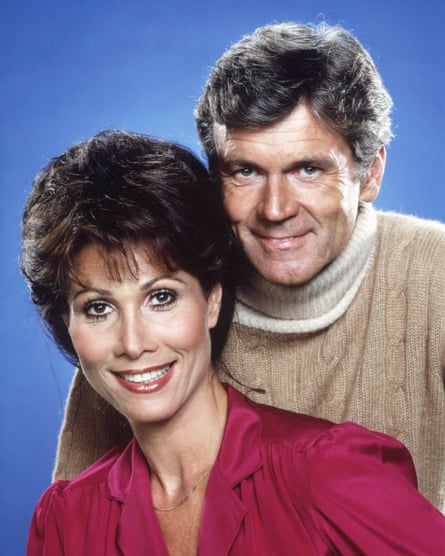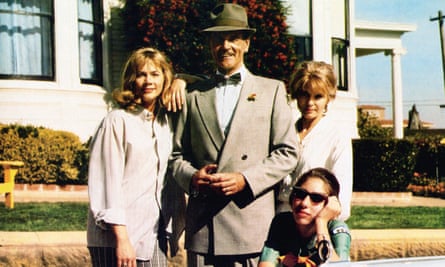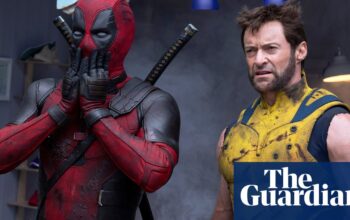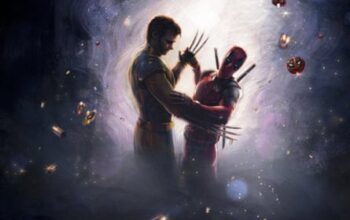Don Murray, who passed away at the age of 94, became known for his role in the 1956 film Bus Stop alongside Marilyn Monroe. His portrayal of a naive cowboy who falls for a saloon singer earned him an Academy Award nomination for best supporting actor and a Bafta nomination for most promising newcomer. Monroe excelled as Chérie and Murray played Beauregard, the lovestruck suitor, perfectly.
In 1957, his career gained momentum with two films: The Bachelor Party, where he portrayed a married man dissatisfied with the questionable events at a bachelor party, and A Hatful of Rain, playing a Korean War veteran struggling with heroin addiction. Director Fred Zinnemann labeled it as “the darkest film I’ve ever made.” Murray’s acting showcased his dedication, a defining trait in his future projects. Not many actors have let their personal values and political views significantly impact their professional paths.
Don was born in Hollywood, California and grew up in Long Island in a family involved in show business. His mother, Ethel (nee Cook), had been a Ziegfeld girl and his father, Dennis, worked as a stage manager and choreographer. Don started acting while attending East Rockaway high school. He continued his education at the American Academy of Dramatic Arts in New York and then began his career in summer stock. In 1951, at the age of 21, he made his Broadway debut in Tennessee Williams’s play, The Rose Tattoo. The following year, he was drafted to fight in the Korean War but refused due to his religious beliefs as a conscientious objector. Instead, he spent the next three years working with refugees.

In 1955, he came back to the stage in Thornton Wilder’s play The Skin of Our Teeth. He then appeared as Henry Antrobus in the TV adaptation of the play. The director Joshua Logan saw his performance and cast him in Bus Stop, as he had a reputation for discovering good-looking and talented young actors. Murray struck up a friendship with fellow actor Hope Lange, who also made her film debut in Bus Stop, and their relationship turned into a romance. They tied the knot in 1956.
Following the intense dramas of 1957, he portrayed a seemingly innocent cowboy in the vengeful western From Hell to Texas (1958). He continued to work in the west, starring in These Thousand Hills and taking on the titular role in a TV adaptation of Billy Budd (1959). In the same year, he appeared alongside James Cagney in Shake Hands With the Devil, the inaugural film to be filmed at Ardmore Studios in Ireland. He played an Irish revolutionary who becomes disenchanted with his leader’s extremism. Murray then returned to the saddle for One Foot in Hell (1960).
Murray’s accomplishments allowed him to create a film of his preference. In addition to producing, he also collaborated (using the alias Don Deer) and acted in The Hoodlum Priest (1961). The movie tells the tale of Father Charles Dismas Clark, who aided troubled youth and ex-convicts in St. Louis during the 1920s. This impactful film took a non-conventional stance against the death penalty and advocated for the reformation of criminals.
The next film in his career was Otto Preminger’s political thriller Advise and Consent (1962), which is considered his best work. He was part of an impressive cast, including Henry Fonda, Charles Laughton, Walter Pidgeon, and Lew Ayres. In the film, Murray played a senator who is blackmailed and ultimately takes his own life due to a homosexual relationship during his time in the military in Hawaii. The political drama, suicide, and LGBTQ+ theme were considered controversial at the time.
The film Escape from East Berlin (also known as Tunnel 28), directed by Robert Siodmak in Germany, was a docudrama based on a real event where a group escaped to the west through a tunnel. Continuing his fascination with real-life stories, Murray starred in One Man’s Way (1964), a film about a journalist who becomes an evangelist. In the underappreciated drama Baby the Rain Must Fall (1965), he played the secondary role to Steve McQueen. However, this gripping tale of a troubled man faced challenges with studio interference and hesitancy upon its initial release.
Movies with a strong dedication were becoming more difficult to come by, and Murray appeared in a few westerns before going to Britain to star as the Roman governor Justinian in a dull historical epic, The Viking Queen (1967).

Display the image in full screen mode.
Following the success of his film Sweet Love, Bitter, a serious retelling of the life of jazz musician Charlie “Bird” Parker, and his role in the TV show The Outcasts, Murray wrote and starred in Childish Things (1969). In this movie, he portrayed a former alcoholic soldier who becomes entangled in criminal activities but is ultimately redeemed by love. While Murray’s sincerity was evident, his decision to work with director John Derek resulted in a combination of exploitation and moral lessons. In order to have more creative control, Murray took on the role of director for his next project, The Cross and the Switchblade (1970). This film also focused on a zealous minister, but this time set in New York City and starring singer and occasional actor Pat Boone, who shared Murray’s religious beliefs. However, the film did not do well commercially and received criticism for its overly religious tone.
In his 40s, Murray decided to focus on commercial films and appeared in Conquest of the Planet of the Apes (1972), Justin Morgan Had a Horse (1972), Cotter (1973), and the thrilling Deadly Hero (1975), where he played a detective. He also took a break to produce Damien’s Island (1976), a film about a priest who worked with leprosy patients but ultimately succumbed to the disease himself. However, Murray’s version of the true story was never released. He later returned to television, starring in How the West Was Won (1977), Rainbow (1978) as Judy Garland’s father, Frank, and spending three years on the soap opera Knots Landing (1979-82).
He made sporadic appearances in well-received television movies like Something in Common (1986) and occasionally in notable films such as Francis Ford Coppola’s underrated Peggy Sue Got Married (1986), playing the role of Peggy Sue’s (Kathleen Turner) father, and a charming romance by Alan Rudolph, Made in Heaven (1987). However, following the disappointing Ghosts Can’t Do It (1989), directed by John Derek, Murray took a five-year hiatus from the big screen and later made infrequent appearances, mainly in supporting roles.
In 2001, he starred in Island Prey alongside Olivia Hussey. After a 30-year break from directing, he returned with Elvis Is Alive, a comedic film about a Presley impersonator in Paris who may actually be the real deal. Murray also had a role in the film, and his son Sean provided the music. In 2017, he came out of retirement in Santa Barbara to appear in the revived TV series, Twin Peaks.
Murray’s first marriage, which ended in divorce, resulted in two children, Christopher and Patricia. He married Bettie Johnson in 1962 and they had three children together, Colleen, Sean, and Michael.
Source: theguardian.com


